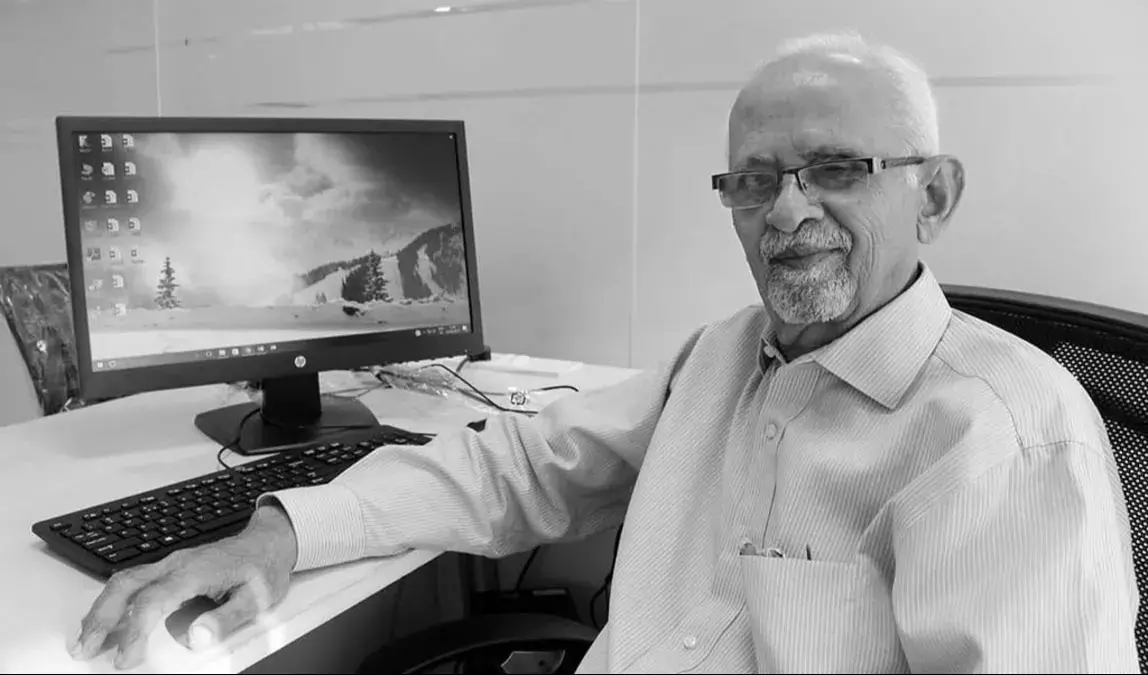Zafar Agha - A Journalist Who Did The Profession Proud
Obit

“For the first time in my life I felt I was a Muslim, a defeated and humiliated Muslim. It was not the India of my dreams and my beliefs” - Zafar Agha
Zafar was not just a colleague, a journalist of principles, but a comrade-in-arms. Quiet, unassuming he was a friend always in this cut throat world of journalism. A gentle person who took the time to make that phone call when he thought you were in trouble, or he himself was depressed with political goings on. We never talked personal (about families) and yet were personal, Zafar always caring and affectionate.
Zafar worked with solid publications as he was a good journalist and even the owners of big media recognised that. But he did not stay long in most jobs because he believed in the truth and in news and facts. As he would tell me, we were of a generation that refused to compromise and would rather stay out without a salary than in with money. He was always true to his words, and there were periods of his life where he struggled to survive. Long periods without a job, but never did he lose his dignity or his commitment to the truth.
Everyone knew Zafar, and he was perhaps one of the most liked and respected journalists of our time. He did not play Delhi journalism, and shunned cocktail parties and such get-togethers. He never had an unkind word for any one, and was one of those journalists who never encouraged gossip or bad mouthing. Zafar always spoke about issues, and was visibly ill at ease if he did venture into one of Delhi’s social events with journalists desperately joining the fray of kisses in the air, and chatting about the weather or the next event. As an editor or a reporter Zafar was always the same person.
His heart broke over the last few years. And he would call to tell me about it. A quiet conversation always about politics and where the country was heading, and how bleak the future seemed and yet he always ended with hope. But he never shared what he was going through personally, when he lost his wife to Covid, and himself became so ill that he found it difficult to manage. He never spoke of his worry for his young son Moonis, who was the light of his life and is alone today. Or the fact that when he had finally got a job after a hiatus of being out in the woods, his personal life turned into tragedy. Or how difficult life had been, without a job and without a steady income.
Zafar never thought of himself as a Muslim but only as an Indian. Religious identity was never a part of him, and hence the words he wrote about being humiliated and defeated came not just as a shock, but a statement of the deterioration in our democracy. A degeneration that had impacted this proud, dignified man, who was struggling to come to terms with the new reality.
His was a life of struggle, personally, professionally at all levels. He never complained, took the lemon with the sweetmeats with more composure than any journalist I have known. That life had dealt him more than his share of lemons many of us knew, as perhaps Zafar did too. But he never acknowledged it, and there was this aura of tolerance and acceptance around him always. He was never different —with a job, without a job— always smiling, encouraging, and holding your hand when you needed it the most.
Goodbye Zafar, a life lived and certainly not lost.



